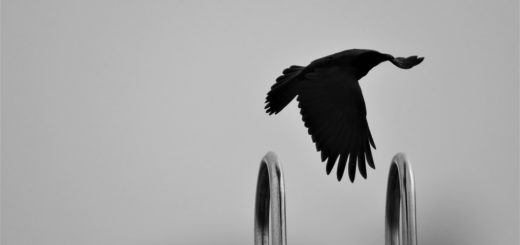The Question of the Body
As much as our modern temperament is inclined to demand simple reductions of everything — simple reductions being the wisdom of the common man, suitable for an egalitarian age that has elevated commonness to an ideal — there is in truth no single question that defines or epitomizes philosophical investigation. Rather, the essential questions of the philosophic pursuit may be represented as manifestations of the facets of life, which is to say as so many surfaces which shine forth to the mind, drawing us, if we are so inclined, toward the wonders hidden beyond those surfaces. One such facet, representing one angle of approach to the search for the meaning of things, is the question of the relationship between soul and body.
Even framing the question this way will rankle the sensibility of those committed to the modern conception of knowledge as factual certainty. “Soul and body?” they will guffaw. “What could that distinction even mean, in this scientific age?” It could mean, and should mean, more or less what it meant in any previous age, including previous scientific ages, namely a plain acknowledgment that human existence, as we experience it, consists of two theoretically distinguishable, though obviously related, domains: first, that of material necessity and passive interaction with discrete elements of the surrounding environment; and second, that of thought, desire, and imagination, which three together generate a comprehensive understanding of oneself, of the whole of things, and of the former’s place within the latter. The relationship between these two domains, form and matter, constitutes an intractable condition of all human experience. And since philosophy, properly understood, is precisely the search for the deeper causes and meaning of our experience, any attempt to evade the question of soul and body is effectively an attempt to block one’s ears to the distant voices calling us to heed the Delphic oracle’s command: “Know thyself.” The soul-body question, then, must be asked, not due to any abstract theoretical or “mere historical” interest, but due to its centrality to our lives as we experience them.
Among the various possible answers, the most basic metaphors (all proper answers being metaphorical) include the soul as pilot to the body as ship, the soul as prisoner to the body as prison, and the soul as illusory projection of the body’s reality. The first, soul as pilot, is the most pleasing to the mind, as it indicates a relationship of master to servant, a man in his true being manifest as a controlling power, with the body as his useful or necessary instrument. The second, prisoner to prison, implies a mood of fundamental dissatisfaction with the practical facts of living, whether due to external or internal conditions, or perhaps internal ones as an effect of external ones. The third, the soul as illusion of the body, is so essentially incoherent that it is only an age of aggressive scientific materialism — such as, most radically, our own nihilistic post-Enlightenment era — that could so ingeniously delude itself as to imagine that imagination itself is merely imagined, as though logic never existed.
This leaves the first two options, pilot in his ship and prisoner in his cell (both Platonic in popular derivation), as the most plausible of the three basic possibilities. The relation of pilot to ship is one of complementarity, partnership, a proper hierarchy of ruler and ruled; the body is the soul’s more or less obedient servant and instrument, with the soul bearing primary responsibility, as navigator, for any mishaps or catastrophes encountered on the journey. By contrast, the relation of prisoner to prison assumes that the soul has been deprived of, or at least severely curtailed in, its natural navigational authority; in this case, the soul is being denied its proper journey, confined by the body’s burdensome and onerous demands.
It is clear that we are describing a quasi-political relationship between the matter and form of man; the topic at issue is nothing less than the character and possibility of good government, of rational rule versus tyranny and enslavement pertaining to a man’s relationship to himself, qua composite being. This helps to explain why Plato, in the founding work of political philosophy, begins the main discussion of the meaning of justice with an analogy between the individual man and the city, and proceeds with the Socratic dialectic in such a way that one is never sure whether the primary intent is to establish the city of the philosopher-kings as a metaphor to illustrate the nature of the just man, or vice versa. It also explains why Socrates, in the final hours of his life, and sitting, with poetic aptness, in his actual prison cell, famously describes the philosophic life as “practicing death,” i.e., training the soul for its eventual departure from the constraints of the body. These two immortal scenarios — the city of the philosopher-kings and the philosopher locked in his cell preparing to die — perfectly embody the two rival views of the soul, pilot and prisoner, respectively.
It is important, however, that we never fall into mistaking these two perspectives for a contest between hope and despair. Socrates is never given to despair, a fact driven home most eloquently in the Phaedo itself, wherein he enthusiastically and unflinchingly addresses the question of the soul’s immortality on the very day of his own execution, and chastises his friends for becoming despondent when the argument reaches a disturbing impasse. It is truth that the philosopher seeks, not comforting certitudes. If it should turn out, according to reason, that our bodily prison is as inescapable as its political counterpart, the knowledge of that truth too would constitute spiritual freedom, and hence, paradoxically, prove the soul’s power to overcome the burdensome limitations of matter after all. In short, as long as there is reason in us, and the strength and will to follow its path wherever it leads, there is at least the possibility of emancipation.
The prisoner is inevitably and constantly assaulted with frustrations, humiliations, and painful chains to be sure; but the ultimate meaning of this assault is, to the extent that a man remains human, generated by the reason, imagination, and feelings of the prisoner himself. The body will impose its necessities, but the soul will define the effects of these within a comprehensive vision of the whole. And within this capacity lies the secret meaning of the prisoner metaphor. For a prisoner is not part of the machinery or of the functioning of the prison per se, but rather, in essence, a foreign or independent entity artificially enclosed within that machinery. That is to say, whereas a prison can only be defined by reference to the prisoner, the prisoner is only accidentally or contingently a resident of a prison, while in essence having another, separate definition of his own.
Perhaps it is this truth, above all, that Plato is representing with his grand political speculation about philosopher-kings. The true and proper pilot, confidently in control of his ship, may be almost as implausible psychologically as it is politically. However, this does not reduce the soul’s freedom to a fantasy or “illusion,” any more than the true definition of justice suffers from the obvious dearth of practical instantiations. The prisoner in his bodily cell “practicing death,” which is to say reasoning in the greatest possible detachment from the vested emotional interests of a material individual confined by time and place, is in a sense identical to the philosopher naturally suited to rule in the imaginary and impossible just city.



